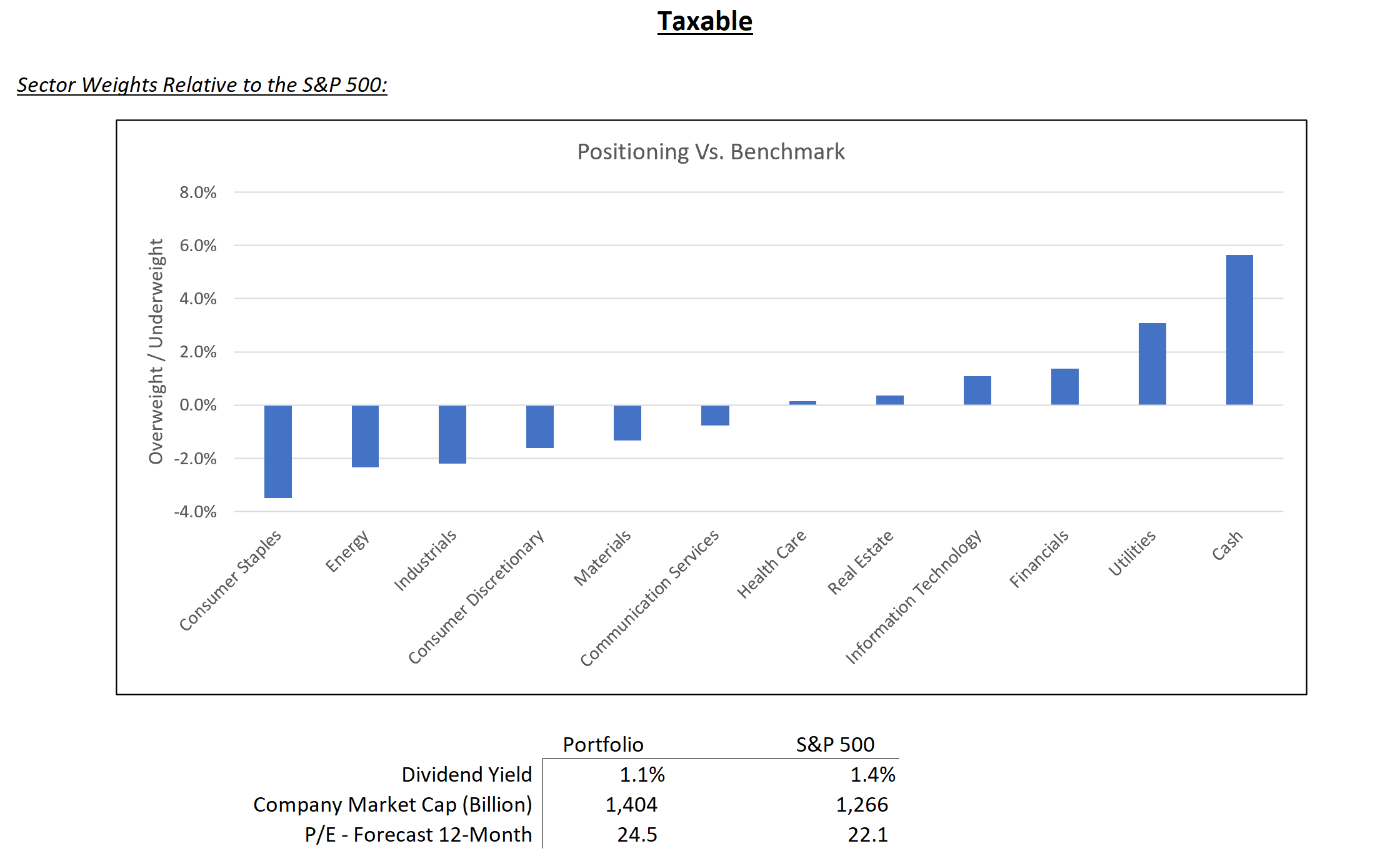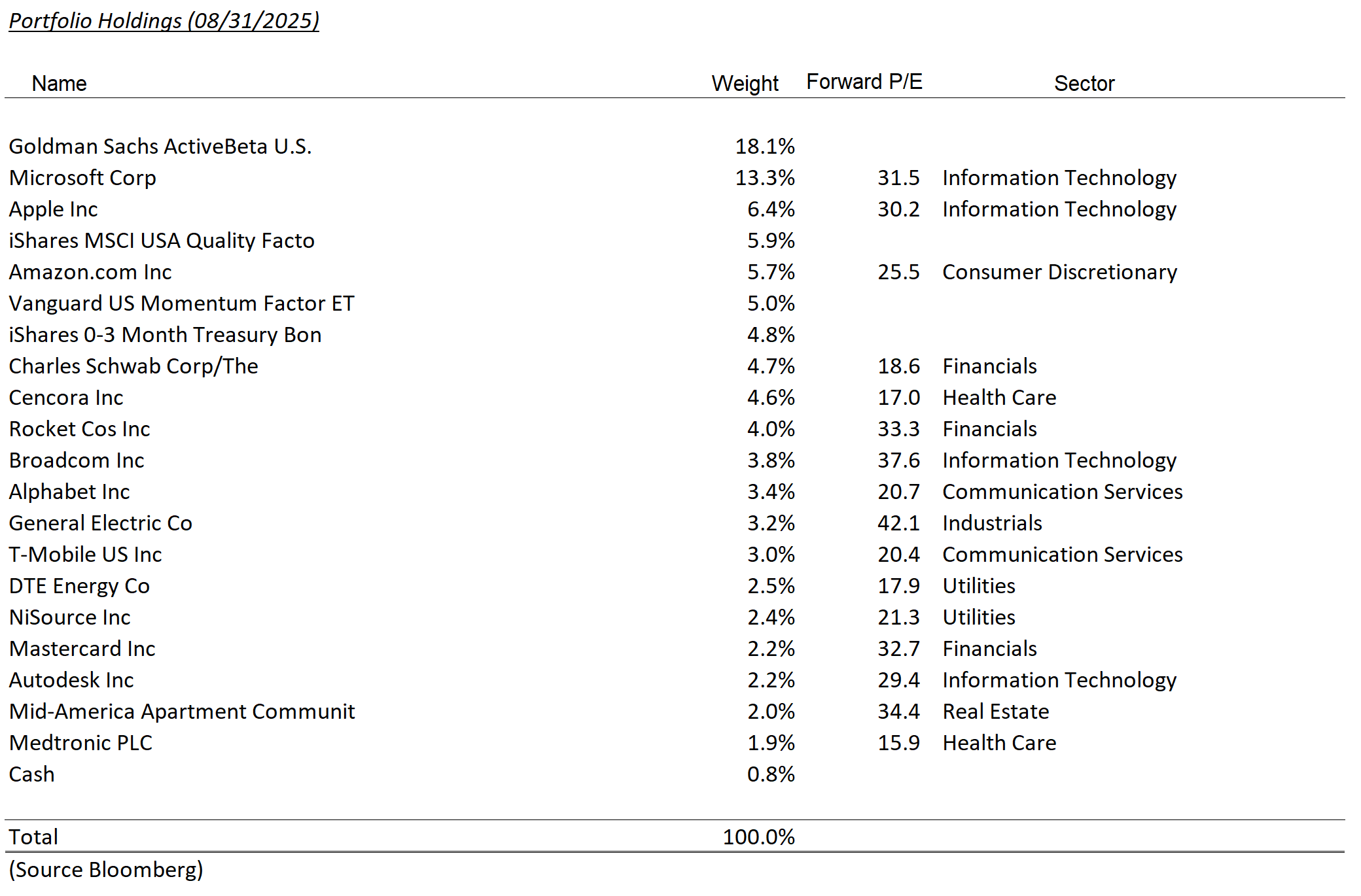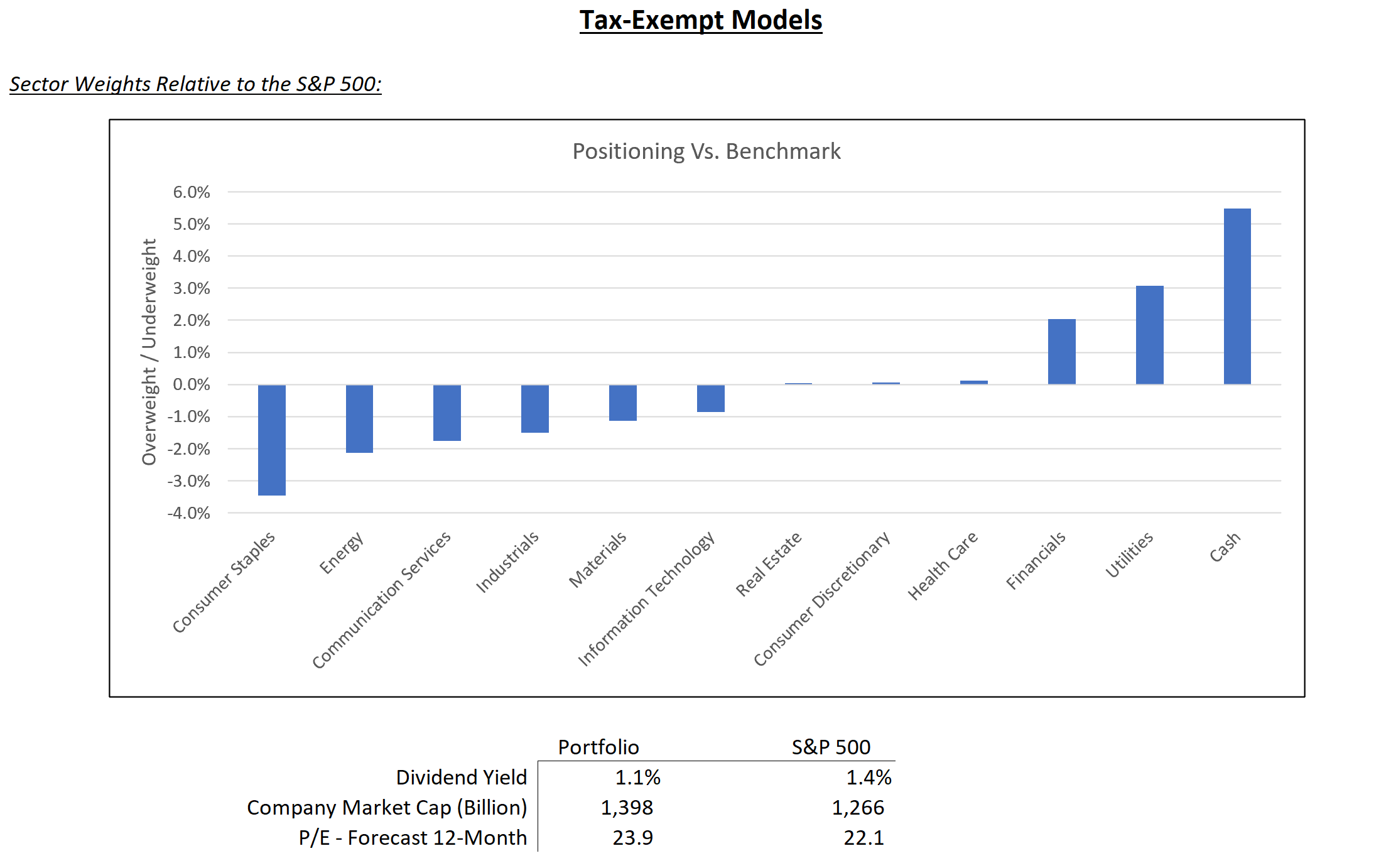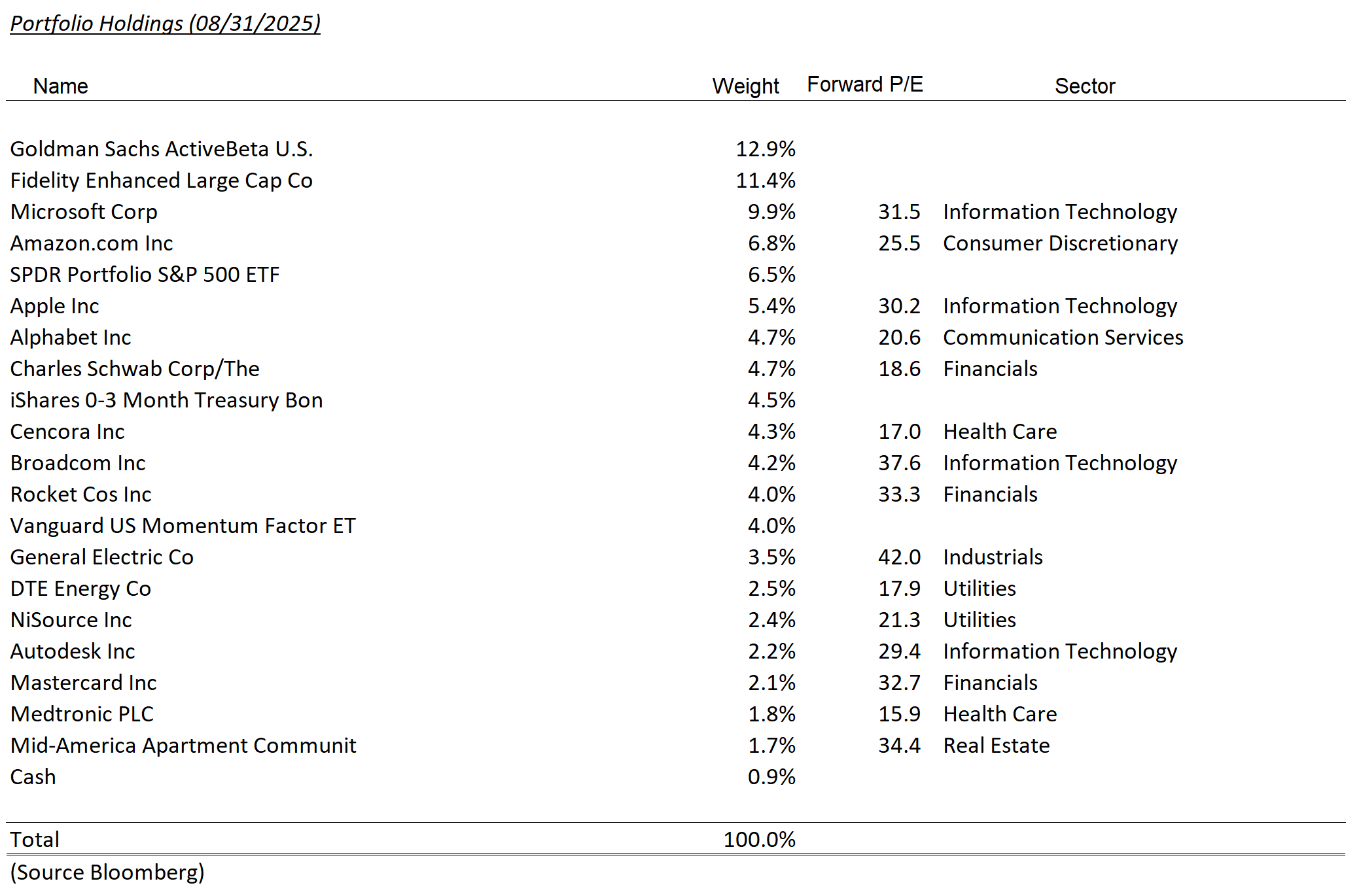August Changes
There were no changes to the portfolios in August following our last update.
Market Overview
U.S. equities, as measured by the S&P 500, returned 2.0% in August. The strongest performing sectors were Materials, Health Care, and Energy, while Utilities, Industrials, and Information Technology lagged.
Despite being a relatively quiet month, two key developments helped shift market sentiment: a notably weak July employment report and remarks from Fed Chair Jerome Powell at the Jackson Hole Symposium. Together, these events boosted expectations of monetary easing, with the market-implied probability of two rate cuts by year-end rising from 40% to approximately 86% over the course of the month (source: CME Fed Watch Tool).
Portfolio Contributors and Detractors
Top contributors to Lincoln Capital client portfolios in August included Rocket Companies and Alphabet. Microsoft and Charles Schwab were modest detractors.
- Rocket Companies benefited from falling interest rates. Given the volume of mortgages originated in recent years at higher rates, we believe Rocket is well positioned to capitalize on a future refinancing wave. Additionally, we view the completed acquisition of Redfin and the pending acquisition of Mr. Cooper as long-term positives.
- Alphabet performed well as investor concerns began to ease. Earlier this year, the stock came under pressure amid fears that generative AI would disrupt its dominant position in search, along with potential consequences from its ongoing antitrust suit. More recently, sentiment has shifted toward the view that Alphabet is likely to maintain a leadership role, even in a search-alternative environment shaped by AI.
- Microsoft and Charles Schwab declined by 4.9% and 1.7%, respectively—moves we view as minor and not reflective of any fundamental change. Schwab remains fundamentally strong, and Microsoft continues to hold a leading position in enterprise AI.
Post-Month-End Development: Alphabet Antitrust Ruling
Shortly after month-end, a judge issued a ruling on remedies related to Alphabet’s monopolistic business practices. Importantly, the decision was broadly viewed as favorable to investors, avoiding harsher outcomes such as banning payments to device manufacturers or forcing the divestiture of Chrome. While Alphabet is expected to appeal, potentially prolonging resolution, the judgment provided a degree of clarity welcomed by the market.




Disclosures
The views expressed represent the opinions of Lincoln Capital Corporation as of the date noted and are subject to change. These views are not intended as a forecast, a guarantee of future results, investment recommendation, or an offer to buy or sell any securities. The information provided is of a general nature and should not be construed as investment advice or to provide any investment, tax, financial or legal advice or service to any person. The information contained has been compiled from sources deemed reliable, yet accuracy is not guaranteed.
Additional information, including management fees and expenses, is provided on our Form ADV Part 2 available upon request or at the SEC’s Investment Adviser Public Disclosure website.
Past performance is not a guarantee of future results. Please note that due to rounding differences, certain data presented may not sum to 100%.
The investments presented are examples of the securities held, bought and/or sold in Lincoln Capital Corporation strategies during the last 12 months. These investments may not be representative of the current or future investments of those strategies. You should not assume that investments in the securities identified in this presentation were or will be profitable. We will furnish, upon your request, a list of all securities purchased, sold or held in the strategies during the 12 months preceding the date of this presentation. It should not be assumed that recommendations made in the future will be profitable or will equal the performance of securities identified in this presentation. Lincoln Capital Corporation or one or more of its officers or employees, may have a position in the securities presented, and may purchase or sell such securities from time to time.

